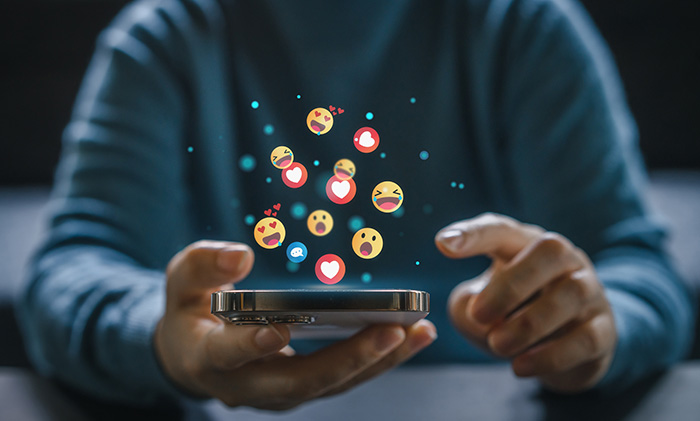Ocean Vuong is right. Cringe culture is killing our creativity
Every week, PhilSTAR L!fe explores issues and topics from the perspectives of different age groups, encouraging healthy but meaningful conversations on why they matter. This is Generations by our Gen Z columnist Angel Martinez.
“Thank you for never failing to make me feel that I am the most beautiful girl in the world. Thank you for teaching me to embrace my imperfections, because that’s what makes me special. I am infinitely proud of you, and I will forever be a part of you.”
You’d think such private, personal sentiments are something straight out of a teenage diary. But, unfortunately, this is from a public Facebook post that I wrote for One Direction over a decade ago. In honor of their 15th anniversary yesterday, I scoured my social media archives and came across the sappiest, cheesiest essays I dedicated to each of the boys—all of which I chose to broadcast with hundreds of family members and friends. Nostalgic as I was, I couldn’t help but wonder: Why did I think these were acceptable to share? Had I no shame?
Then, I remembered. These were the early days of the internet, untouched by trend cycles or arbitrary rules. Blurry, bokeh-filled shots; shoddy attempts at Adobe Photoshop; and amateur Soundcloud covers of Top 40 hits littered our personal websites. (Totally not based on experience.) When you’re young, your emotion is effortlessly channeled into creative energy—and for some reason, the output becomes everyone’s problem.
But now, we’d rather choose to live in an era of curation and curtailment than succumb to cringe. Poet and writer Ocean Vuong recently shared similar insights in an interview with ABC News. Based on his experience as a professor, students are “more and more self-conscious of trying”: “I want to be a poet, I want to be a good writer, but it’s a bit cringe. [They] don’t want to be seen as trying and having an effortful attempt at their dreams.”
Cringe in itself is not a new phenomenon, but a conditioned biological reaction. We shudder in secondhand embarrassment not always out of cruelty or contempt, but because we empathize with someone experiencing shame in the same way we might have. But similar to other terminologies weaponized by online trolls, ‘cringe’ has devolved into a source of enjoyment, and then an insult for those who deviate from social norms. Even if the said social norms are simply showing up and being ourselves.
Vuong cites online surveillance culture as one of the main culprits. It’s never been easier to peer into what others are doing, and provide scathing commentary in the process. Someone’s participating in a dance challenge when they have two left feet? Off to the groupchat. Someone’s earnestly professing their love for a movie, book, or artist that we think is passé? Clowned on X, for a few quick likes.

Unsurprisingly, this affects the way we speak to and treat ourselves. We foresee we’d only get judged the way we judge others, so we choose not to give things a shot. Instead, we’d rather appear “disaffected, too cool, [that we] have seen it all,” as Vuong says. “[We] perform cynicism because cynicism can be misread, as it often is, as intelligence.” But by suppressing our desires and surrendering to an inauthentic existence, we rob ourselves of our true potential. Creativity requires openness and honesty: traits that stick out like a sore thumb in an era of nonchalance.
Practically speaking, we may also miss out on valuable opportunities. I witnessed this myself in a freelance writing workshop I held a few months ago. One of the most frequently asked questions among my 60 attendees was, “Where did I get the bravery to put my ideas out there?” It didn’t just come down to a lack of knowledge or connections: These talented writers were genuinely afraid of being perceived. And the more they held themselves back, the more brilliant and bold ideas stayed in the drafts.
Throughout the two-hour Zoom call, I struggled to answer it properly, since the prospect never occurred to me. I was fortunate enough to grow up in an environment where my ideas were entertained and encouraged. It was my mom who would bring home stapled sheets of paper from her office so I could make my own “books”, and my dad who would dutifully listen to my long and winding stories after a tiring day of work.
Instilled in me was a persistent belief that I had something worth saying, even if I only had both of them to back me up. And so, as a kid, I’d put out regular blog entries, covering everything from my favorite TV show to my fun Christmas. As a teen, I’d proclaim how much I loved and loathed the latest in pop culture, with the foresight of a modern-day prophet. And as a young adult, I’d send my ideas to local and international publications, though I had no other bylines or credentials to my name.

Maybe if everybody came with role models who believed we were worth the time and attention, we’d be markedly less self-critical. As an educator, Vuong touches on the importance of the classroom as a “wonderful place to eradicate [this insincerity]”. According to him, teachers have to “set the tone for their students: you welcome them, you won’t judge them, that they can be sincere without being condemned or ridiculed for it, and that they can try their best and it won’t be cringey to do so.”
And while it’s important to start young, we jaded adults can break free from the grip of cringe culture. An effective method I’ve found is to think of the insignificance and impermanence of everything. Whether it’s declaring a goal online and failing to meet it, or sending an email to an editor and receiving no response, rejection is actually not that big of a deal.
With our overflowing inboxes, Google Calendar windows, and social media timelines, it won’t be long before everyone concerned forgets about it. There is always room to start over. Most importantly, I should be as gracious to others as I am to myself, so we all have space to flail around, fail, and start afresh.
Generations by Angel Martinez appears weekly at PhilSTAR L!fe.



